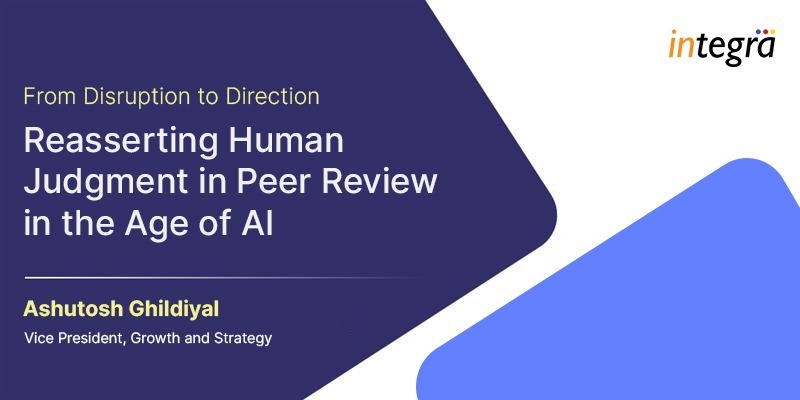Decoding the Role of Data Analytics in Modern Education: A Business Perspective

The ascent of “Data Analytics in Education” is reshaping the trajectory of educational businesses and institutions worldwide. As these institutions harness the power of data, they’re able to refine their decision-making processes, ultimately leading to superior educational outcomes. The education sector is increasingly recognizing the value of data analytics, with the global Big Data Analytics in Education market forecasted to reach $57.14 billion by 2030, expanding at a CAGR of 15.2% from 2021 to 2030.
Data Analytics and Modern Education: Setting the Stage
Data analytics embodies a meticulous process of evaluating raw data to draw significant conclusions. It involves advanced algorithms and statistical techniques to identify patterns, anomalies, and relationships within the data, making it a cornerstone for decision-making in various sectors.
In the realm of education, data analytics emerges as a transformative tool. It aids institutions in gauging their effectiveness, pinpointing areas of improvement, and customizing their strategies to meet the dynamic needs of their student population.
Why Incorporate Data Analytics in Education
With insights from data analytics, institutions can personalize learning pathways, ensuring students and customers derive the maximum value from their educational investments. Such experiences resonate with learners, leading to heightened engagement, satisfaction and retention rates.
Real-time data enables institutions to identify trending courses and subject areas, allowing them to adapt and refine their offerings in accordance with market demand. Modern learners seek relevance and applicability. By discerning which courses see maximum traction, institutions can refine and amplify these programs, ensuring they remain pertinent in an ever-evolving job market.
Data analytics can also help edtech firms and educational publishers optimize instructional materials design and improve instruction delivery. Through data on student performance, areas where students need the most support, content formats that work the best, etc., can be identified to inform instructional design.
Analytics can also support predictive models to identify students at risk of failing a subject or dropping out. This can help educational institutions implement timely interventions.
Efficient Resource and Budget Allocation for Educational Institutions
By analyzing resource utilization patterns, institutions can optimize their budgets, ensuring resources are channeled to areas that maximize impact. Modern learners seek relevance and applicability. By discerning which courses see maximum traction, institutions can refine and amplify these programs, ensuring they remain pertinent in an ever-evolving job market.
K-12 educational institutions are today struggling to provide high-quality education with limited resources. Analytical insights can help school districts make strategic financial decisions and optimize budgets. However, research shows that while 79% of schools say that the latest technology tools are critical for efficiency, only 11% put data analytics as their top priority.
Research also shows that data analytics could lead to a significant improvement in student retention, which alone could help higher education earn approximately an additional $1 million annually.
Practical Applications of Data Analytics in Education
1. Student Performance Analysis:
Through an intricate assessment of metrics like enrollments, course completions, and feedback, educators can identify potential academic pitfalls, enabling preemptive action to enhance learning experiences.
2. Course and Curriculum Optimization:
By constantly aligning their syllabi with real-world requirements and market demands, institutions can ensure that their graduates are both academically proficient and industry-ready.
3. Operational Efficiency:
Streamlined administrative processes, born out of data insights, and eliminate redundancies. This not only curtails overheads but also ensures a smoother, more agile operational framework.
4. Engagement Metrics:
A granular analysis of student interactions with e-learning platforms can unearth insights into their preferences, pain points, and aspirations, enabling institutions to refine their digital interfaces and content delivery mechanisms.
Tools and Technologies Powering Data Analytics in Education
In the ever-evolving tech landscape, platforms like Tableau, Google Analytics for Education, and Blackboard Analytics are pioneering the educational analytics space.
AI-driven analytics tools, including deep learning algorithms, offer granular insights, enabling institutions to predict and address challenges even before they arise. The fusion of AI and analytics transcends traditional data interpretation boundaries. For instance, predictive models can identify at-risk students or courses that might become popular in subsequent academic terms.
The Tangible Benefits for Educational Businesses
By basing decisions on solid data, institutions can chart pathways that optimize profitability. Data Analytics in Education facilitates a clearer understanding of institutional operations, student preferences, and market demands. By analyzing these data points, educational businesses can make more informed decisions that lead to efficient resource allocation, optimal course offerings, and enhanced student experiences.
With insights from data analytics, institutions can discern market gaps and promptly address them. For instance, if there’s a rising demand for courses in Artificial Intelligence but a dearth in quality offerings, institutions equipped with these insights can swiftly curate relevant courses, giving them a competitive edge.
By harnessing predictive analytics, institutions can anticipate future trends, positioning themselves advantageously in a competitive market.
Harnessing Collaborative Power: Integrating Data Analytics Across Departments
True transformation occurs when data analytics permeates every department, fostering a cohesive, unified approach to institutional growth and excellence. A singular vision, bolstered by uniform data interpretation across departments, ensures that institutional strategies are aligned, agile, and adaptive. By fostering inter-departmental feedback loops rooted in data insights, institutions can continually recalibrate their strategies, ensuring they remain at the zenith of educational innovation.
The strategic importance of “Data Analytics in Education” cannot be overstated for businesses striving to excel in the contemporary educational milieu. Harnessing data not only elevates the student experience but also underpins the pillars of successful, forward-thinking educational institutions. Contact Integra to learn more about leveraging ML to transform your business.
Recent Blogs

Print, Pedagogy, and AI: The New Architecture of Educational Publishing

From Disruption to Direction: Reasserting Human Judgment in Peer Review in the Age of AI


